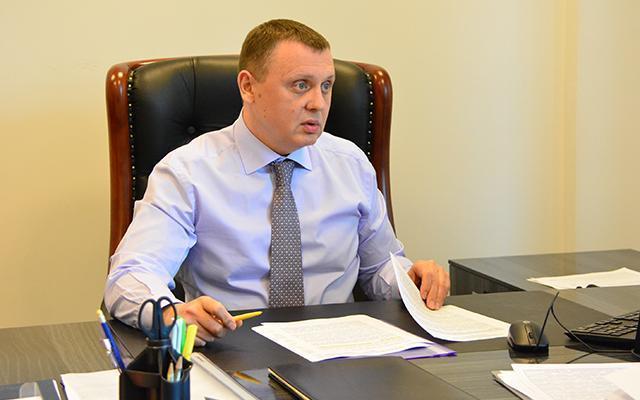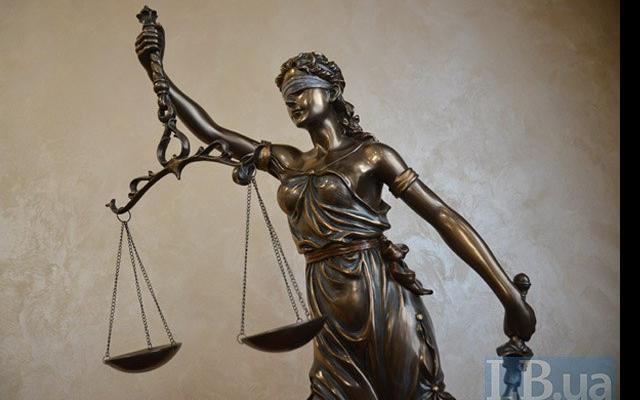
Home quote
On September 6 a draft law "On the Bar and Practice of Law" was submitted to the Parliament. On the one hand, this is good news. Because the plan to reform the bar, make it new, European, professional and so on, is no longer a slogan, but an official document. Moreover, it is not hidden in the offices, but posted in open access on the website of the Verkhovna Rada. The draft law was written by the Judicial Reform Council and identified by the President as urgent.
Publications
The reform myth about the end of the dark times and the bright future of the bar
On September 6 a draft law "On the Bar and Practice of Law" was submitted to the Parliament. On the one hand, this is good news. Because the plan to reform the bar, make it new, European, professional and so on, is no longer a slogan, but an official document. Moreover, it is not hidden in the offices, but posted in open access on the website of the Verkhovna Rada. The draft law was written by the Judicial Reform Council and identified by the President as urgent.
On the other hand, the results of nearly two years of work of this Council and outside experts-lawyers deprive of any belief in the slogans under which this draft law had been producing.
If there is anybody who still has this belief today. Initially, the development process of the draft law was intercepted initiative or a stolen idea from the bar itself. This ugly episode marked the beginning of the backstage preparation process of bar legislation reform in 2016. The position of the National Bar Association, which has legal status of the representative of the bar in relations with the authorities, was stated repeatedly. The right of UNBA for direct participation in the development of the reform is supported by the international partner organizations of the European Bar, but the Judicial Reform Council has ignored not only the commitment of UNBA, but also UN Basic Principles on the Role of Lawyers, recommendations of the Council of Europe, PACE resolution, the conclusions of the Venice Commission on current law on bar and the Strategy for Judicial Reform, approved by the Presidential Decree. Therefore, the draft law had been written without UNBA, which includes all 40 thousand of advocates of Ukraine.
Aforementioned violations concerned the procedure for the elaboration of the draft law. Now, let us consider the document itself. The priorities of the authors of the draft law are immediately visible.
At first, it is the collapse of the bar self-government, its institutional restructuring (for some reason with the Russian nomenclature of the chambers of advocates) and new staff recruitment. The existing bodies would be eliminated, new bodies would be created. The conferences of advocates of the regions and the Congress of Advocates of Ukraine shall be convened prematurely. Objectively, there was no reason to change the whole system. It is fully agreed with the conclusions of the Venice Commission of October 2011 (as well as the entire text of the current law on advocacy of 2012).
There is no widespread discontent among the advocates about the self-government. This is evidenced by the survey results published on the eve of the emergence of the reform draft law on the Verkhovna Rada website. There is no reason for riots, protests, revolutions within the bar community. Therefore the new law is "obliged" to carry out the riot. The first Congress of Advocates should be held no later than 6 months after the entry into force of the new law on the bar.
Judging by erratically written process of election to the bodies of bar self-government and reduction of the term of office from 5 years to 3, personnel changes of the bar will be permanent. An innovation to hold the Congress of Advocates each year is enough to be discussed. Moreover, the Congress would be initiated bypassing the national authority — the Bar Council of Ukraine. How many Congresses would be held, if the decision of the third of the regions or 10% of advocates included in the Unified Register is enough to conduct the meeting? How many "sets" of bar self-government bodies would be elected in each region?
The results of the Congresses and conferences will be challenged indefinitely. Each article of the draft law on self-government incites the unhealthy ambitions and destroys the orderly system of representation of the bar self-government bodies at the regional level. The role of national authorities would become nominal.
Why bother creating all this chaos? Of course, it is in the interests of the people who already see themselves as the heads of this process. Restart of the self-government is also a strong distraction. Advocates are not engaged in round-the-clock work in the self-government (about 1000 advocates were elected to all self-government bodies across the country). Advocates go to courts, it is the main part of their job. And they are a serious obstacle for law enforcement agencies. Especially law enforcement agencies are annoyed by uncooperative advocates in high-profile cases. Now, if the advocates are "squeezed out" of the case by the prosecution, precisely bar self-government is a public forum for the restoration of their professional rights.
But if the draft law is passed, we would have nowhere to complain. New wording of the law on the bar contains a list of changes to the Code on Administrative Offences and Criminal Procedural Code in the Transitional provisions. Among the edits there is the Article "On the Abuse of Procedural Rights".
The draft law authorizes the investigating judge to consider petitions, complaints and challenges a violation and not to consider them; the violations include the absence of an advocate in a court, if the client is against the court hearing to be held in the absence of the defender. Sanctions for such actions would be provided for in the Criminal Procedure Code of Ukraine. In fact, advocate's tactics and protection strategy are criminalized. What a law-abiding advocate is supposed to do? To listen carefully to the Prosecutor and not to burden the judge. The draft law contains a few more interesting innovations that make the advocate a silent observer during the trial.
Do the advocates really need such reform legislation which remains them powerless observers in the criminal process; whether it is the need of Ukrainian citizens, who will be on their own against the prosecution in the courts, whether it is the need of Ukraine, which aims to participate in European structures, but at the same time returns the forgotten techniques of the "the world fairest" Soviet justice?
The article is published in the publication of"LB" online media

Pavlo Hrechkivskyi
advocate, Secretary of Bar Council of Ukraine
Other publications author
Publications

Censor.net Protecting advocates – protecting justice: addressing concerns about the new law

Ihor Kolesnykov A BRIEF SUMMARY REGARDING THE APPLICATION OF THE ORDER ON EXTENDED CONFISCATION IN LATVIA REGARDING FINANCIAL ASSETS OF…

Valentyn Gvozdiy WORKING IN A WAR ZONE

Lydia Izovitova Formula of perfection

Sergiy Vylkov Our judicial system is so built that courts do not trust advocates

Iryna Vasylyk Advocacy in the proclamation of Independence of Ukraine

Oleksandr DULSKY When we cross the border of the Supreme Anti-Corruption Court, we get into another department of the National Anti-Corruption…

Vadym Krasnyk The UNBA will work, and all obstacles and restrictions are only temporary inconveniences

